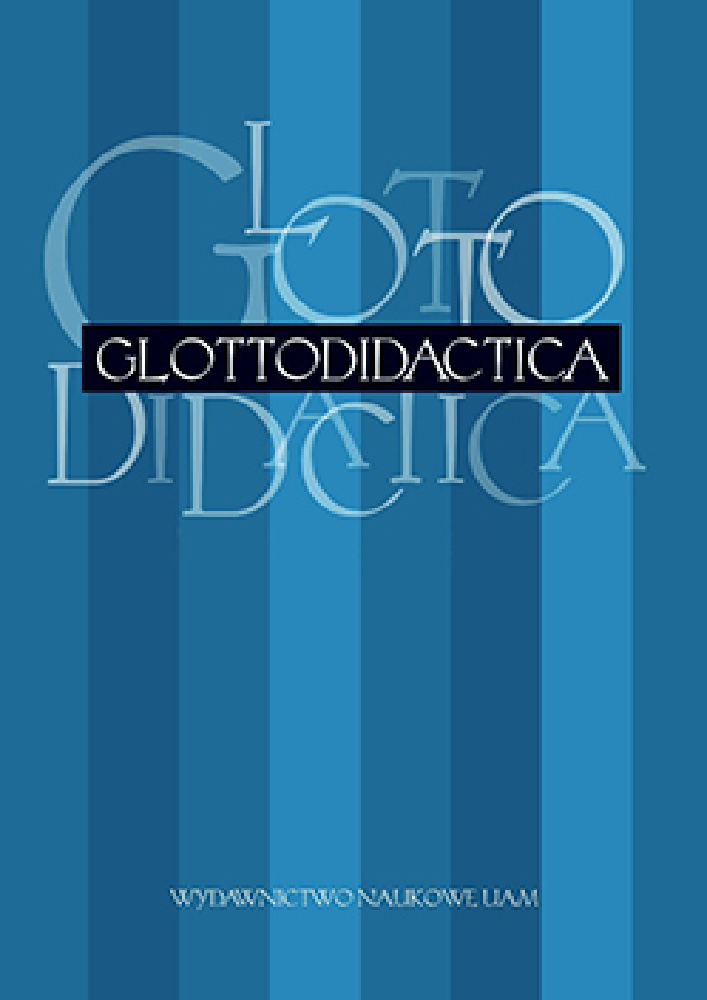Résumé
This article aims to present a didactic teaching proposal, which broaches the issue of evaluation of liaison interpreting. An interpreting scene in the popular series Game of Thrones, in whose third season the slave Missandei serves as a negotiating interpreter, will serve as a live demonstration. On the basis of the evaluation criteria elaborated by Kautz (2002), this scene will be examined and analysed in a plenary session, to enable students to form a clear idea about how negotiation interpreting can look in practice, what difficulties can arise, what solutions can be found and what strategies can be adopted. The subsequent discussion serves as a starting point for further reflections about professional ethics, codes of ethics, the neutrality of the interpreter, etc. This teaching proposal has attracted wide interest and its didactic could all be more than achieved.
Références
Behr, M. (2013). Evaluation und Stimmung. Ein neuer Blick auf Qualität im (Simultan-)Dolmetschen. Berlin: Frank & Timme.
Błaszkowska, H. / Stöckmann B. (2011). Bewertung von Dolmetschleistungen im Unterricht. Glottodidactica. An International Journal of Applied Linguistics, 38, 73–82. http://pressto.amu.edu.pl/index.php/gl/article/view/334/241. DOI: https://doi.org/10.14746/gl.2011.38.7
Collados Aís, A. (2016). Evaluación de la calidad y entonación del intérprete de simultánea: pautas evaluadoras. MonTI: Monografías de traducción e interpretación, 3, 213–238.
Collados Aís, Á. / Fernández Sánchez, M. / Gile, D. (2003). La evaluación de la calidad en interpretación: investigación. Granada: Comares.
Collados Aís, Á. / Fernández Sánchez, M. / Stévaux, E. (2001). Concepto, técnicas y modalidades de interpretación. In: A. Collados Aís / M. Fernández Sánchez (Hrsg.), Manual de interpretación bilateral (S. 39‒60). Granada: Comares.
Collados Aís, A. / Pradas Macías, M. E. / Stévaux, E. / García Becerra, O. (2007). La evaluación de la calidad en la interpretación simultánea: Parámetros de incidencia. Granada: Comares.
Collados Aís, A. / Iglesias Fernández, E. / Pradas Macías, M. E. / Stévaux, E. (2011). Qualitätsparameter beim Simultandolmetschen. Interdisziplinäre Perspektiven. Tübingen: Narr. DOI: https://doi.org/10.24053/9783823376378
Gile, D. (2009): Basic concepts and models for interpreter and translator training. Amsterdam, Philadelphia: John Benjamins DOI: https://doi.org/10.1075/btl.8
Kautz, U. (2002). Handbuch der Didaktik des Übersetzens und Dolmetschens. München: Iudicum.
Kutz, W. (1997). Gut für wen? Zur Bewertung von Konsekutivdolmetschleistungen. In: E. Fleischmann / W. Kutz / P. A. Schmitt (Hrsg.), Translationsdidaktik. Grundlagen der Übersetzungswissenschaft (S. 243–254). Tübingen: Narr.
Limbach, C. (2018). Die Bedeutung der interkulturellen Kompetenz für das Gesprächsdolmetschen. In: B. Beníšková (Hrsg.), Interkulturalität in Sprache, Literatur und Bildung. Interculturality in Language, Literature and Education (S. 51–63). Pardubice: Univerzita Pardubice.
Minahan, D. (2013). Game of Thrones – Valar Dohaeris (1. Folge der 3. Staffel). USA.
Pöchhacker, F. (2002). Researching Interpreting Quality. Models and Methods. In: G. Garzone / M. Viezzi (Hrsg.), Interpreting in the 21st Century. Proceedings of the 1st Conference of Interpreting Studies, Forli, University of Bologna (9-11 November 2000) (S. 95–106). Amsterdam, Philadelphia: Benjamins. DOI: https://doi.org/10.1075/btl.43.10poc
Pöchhacker, F. (2004). Introducing Interpreting Studies. New York: Routledge. DOI: https://doi.org/10.4324/9780203504802
Prunč, E. (2011). Differenzierungs- und Leistungsparameter in Konferenz- und Kommunaldolmetschen. In: C. Kainz / E. Prunč / R. Schögler (Hrsg.), Modelling the Field of Community Interpreting. Questions and Methodology in research and training (S. 21‒44). Wien, Berlin: Lit Verlag.
Reinart, S. (2009). Kulturspezifik und Fachübersetzung. Berlin: Frank & Timme.
Licence
© Christiane Limbach, Alice Stender 2018

Ce travail est disponible sous licence Creative Commons Attribution - Pas de Modification 4.0 International.
Auteurs
Les auteurs de textes acceptés pour publication dans la revue Glottodidactica sont tenus de remplir, signer et renvoyer à l'adresse de la rédaction, un accord sur l'octroi d'une licence gratuite pour les œuvres, avec obligation d'accorder une sous-licence CC.
Conformément à cet accord, les auteurs des textes publiés dans la revue Glottodidactica accordent à l'Université Adam Mickiewicz de Poznań une licence non exclusive et gratuite et autorisent l'utilisation de la sous-licence Creative Commons Attribution-NoDerivatives 4.0 International (CC BY-ND 4.0).
Les auteurs se réservent le droit de disposer librement de l'œuvre.
Utilisateurs
Les utilisateurs d'Internet intéressés ont le droit d'utiliser les œuvres publiées dans la revue Glottodidactica depuis 2016, selon les conditions suivantes :
- Attribution – obligation de fournir, conjointement avec l'œuvre distribuée, des informations sur l'auteur, le titre, la source (lien vers l'œuvre originale, DOI) et la licence elle-même.
- Aucune modification – l'œuvre doit être préservée dans sa forme originale. Sans le consentement de l'auteur, il n'est pas possible de distribuer l'œuvre modifiée sous forme de traductions, publications, etc.
Les droits d'auteur sont réservés pour tous les textes publiés avant 2016.
Autres
L'Université Adam Mickiewicz de Poznań conserve les droits sur la revue dans son ensemble (mise en page, forme graphique, titre, conception de la couverture, logo, etc.).
A PARTIR DE L’ANNEE 2015, LES ARTICLES PUBLIÉS DANS LA REVUE SONT DISPONIBLES SOUS LICENCE CREATIVE COMMONS : https://creativecommons.org/licenses/by-nd/4.0/deed.fr





